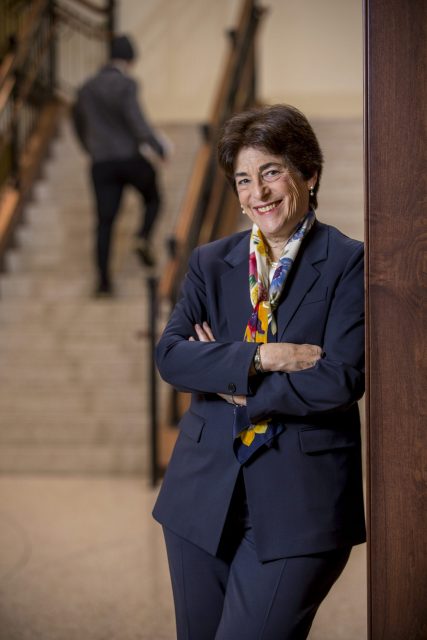Just 12 miles from Manhattan, Montclair State University is positioned at the center of commerce and culture, with a burgeoning enrollment of 21,000 graduate and undergraduate students whose diversity reflects the region and world.
Over the past two decades, Montclair State has invested $765 million in building facilities—while pioneering 80 innovative graduate programs and recruiting leading academics and researchers to fill its expanding 252-acre campus.
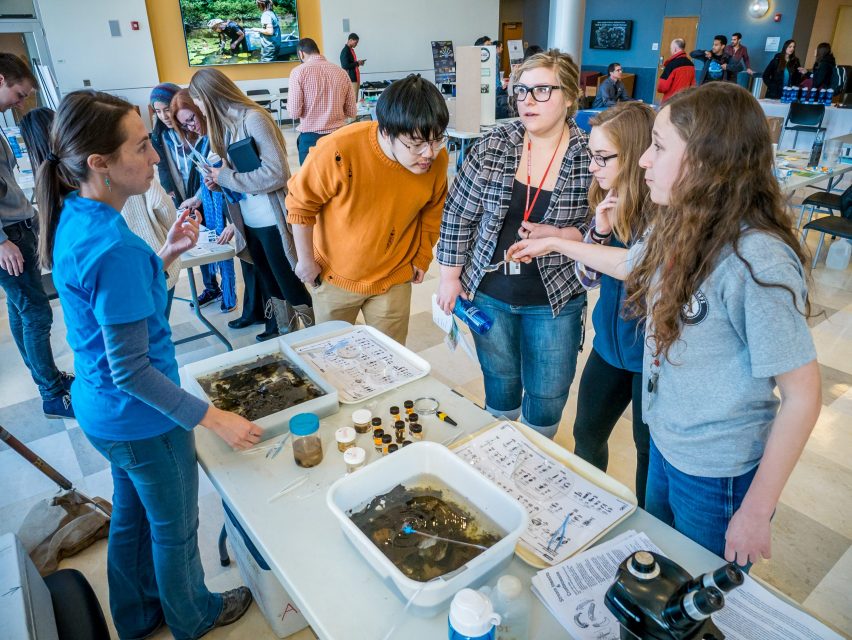
The result: Montclair State is a nationally designated doctoral highresearch activity and state-designated public research institution that attracted a record $17.84 million in research funding in 2018. In short: Montclair State is an ideal partner for innovation.
“The breadth of our research portfolio—from developing treatments for malaria to diversifying New Jersey’s teacher pipeline—represents the upper echelons of scholarship making a real impact on issues of critical importance to New Jersey and the world,” says Vice Provost for Research and Graduate School Dean Scott Herness.
Exploring Character and Leadership Development in Scouts
Montclair State researchers are collaborating with national organizations like the Boy Scouts of America (BSA) to help address questions such as: How do adults shape character in young people? For scoutmasters and other adult volunteers, what kinds of training and experience help them build character in scouts? Family Science and Human Development Professors Jennifer Urban and Miriam Linver are seeking answers from 2,500 scouts and their adult leaders to help BSA strengthen its mission by pinpointing trainings and experiences that lead to the strongest outcomes in scouts.
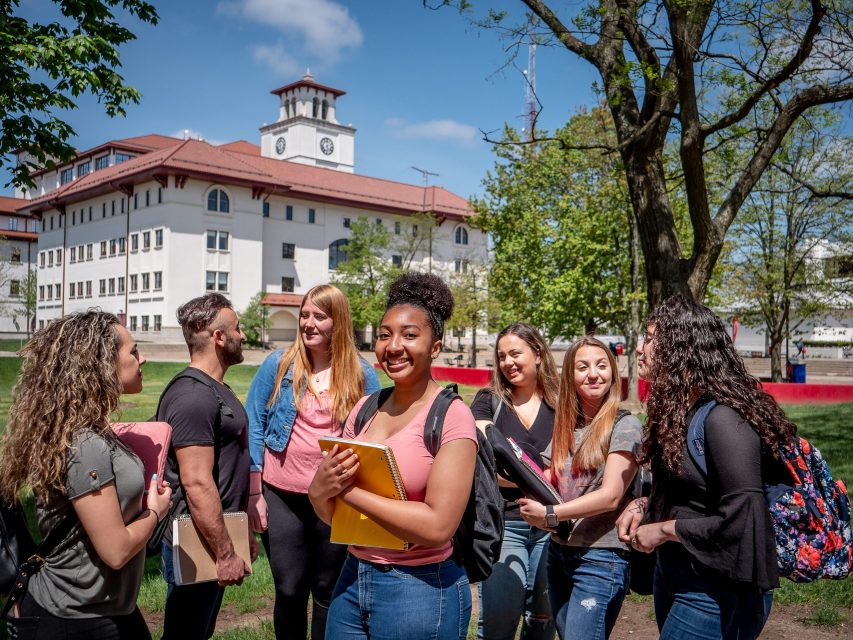
The researchers, who also codirect the Institute for Research on Youth Thriving and Evaluation (RYTE) at Montclair State, have received first-year funding from a two-year $5.7 million Boy Scouts of America National Character Initiative subaward funded by the Stephen D. Bechtel Jr. Foundation to support the second phase of BSA BEST (Building Evidence in Scouting Together), an ongoing nationalscale study exploring the role adults play in youth character development.
The researchers are encouraged by preliminary findings. “We expect that there are several different adult leader profiles that lead to positive youth outcomes,” says Urban. “We’re excited to find out what they are so we can help BSA foster strong adult leaders.”
Diversifying New Jersey’s Teacher Pipeline
Just 16% of New Jersey educators are teachers of color, according to the New Jersey Department of Education (NJDOE). The University has received a NJDOE “Diversifying the Teacher Pipeline: Recruiting Teachers of Color” grant enabling it to tackle this situation by partnering with Newark Public Schools in a 19-month pilot program. It has also joined forces with national educational partners to launch New Jersey’s largest school district’s first teacher academy to grow the next generation of teachers.
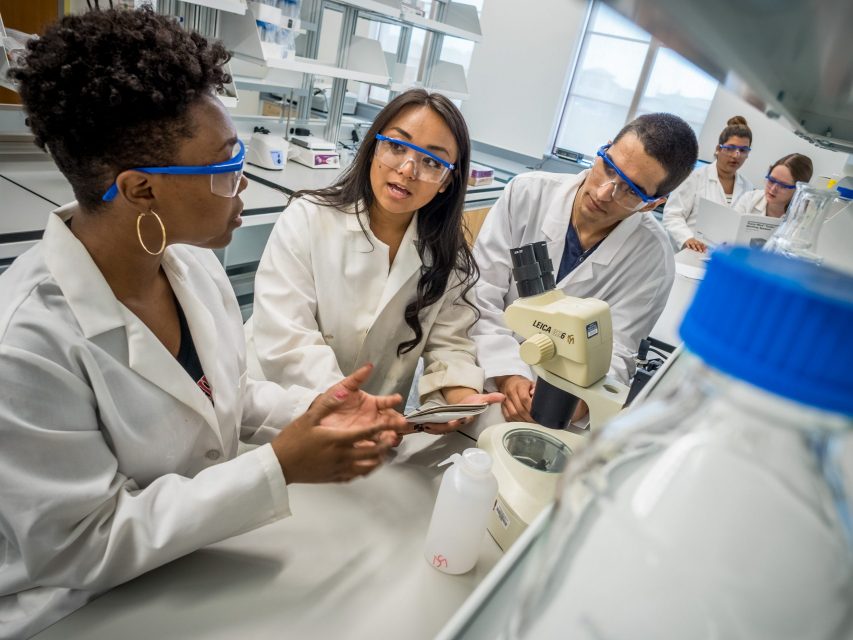
“Montclair State is again in the vanguard of teacher preparation and in helping to lead the recruitment and retention of teachers of color—as well as teachers for urban schools,” says Montclair State Center of Pedagogy Executive Director Jennifer Robinson.
For students of color, this shortage of role models—and teachers who fully understand their racial, ethnic and cultural backgrounds—can contribute to lifelong achievement and opportunity inequities.
The Recruiting Teachers of Color project will extend the work of the University’s innovative Newark Montclair Urban Teacher Residency Program—a sitebased teacher certification program for college graduates and career changers committed to urban education.
Montclair State, Newark Public Schools, and the American Federation of Students recently launched Newark Public Schools Teacher Academy—the first in a planned series of high school academies that will prepare Newark Public School students for careers in education and grow a pipeline of diversity for the state’s teacher workforce. The launch began the planning phase for the Teacher Academy, which is set to open in 2020.
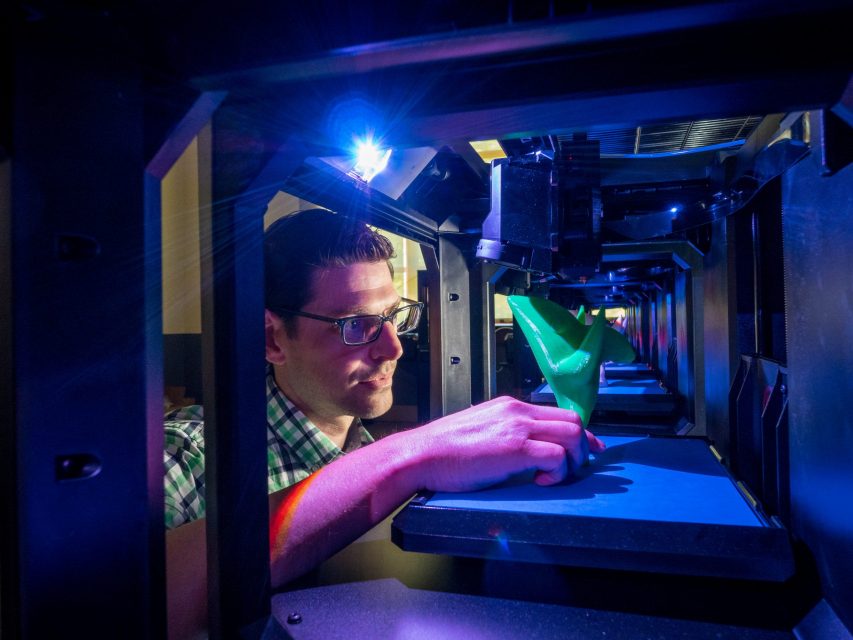
Developing New Treatments for Malaria
With nearly half the world’s population at risk for contracting malaria after being bitten by mosquitoes infected with the single-cell parasite Plasmodium, the recent appearance of Plasmodium strains resistant to existing antimalarial drugs has sparked an urgent search for new antimalarial agents.
David Rotella, Sokol Professor of Chemistry, John Siekierka, Sokol Professor of Medicinal Chemistry and director of the University’s Sokol Institute for Pharmaceutical Life Sciences, and Rutgers University researchers are sharing a three-year, $1.5 million award from the National Institutes of Health’s National Institute of Allergy and Infectious Disease (NIH NIAID) to do just that.
“We’re investigating inhibitors of a protein kinase in Plasmodium that plays multiple roles in its life cycle,” explains Rotella. “We hope to confirm if this enzyme can inhibit the parasitic life cycle of Plasmodium at more than one point. If we can show that, it may be possible to combine this with other antimalarial drugs to treat infection and reduce—or very hopefully—prevent resistance from developing.
“So far, the results support our idea that this enzyme is a good target to explore for the treatment of malaria.”
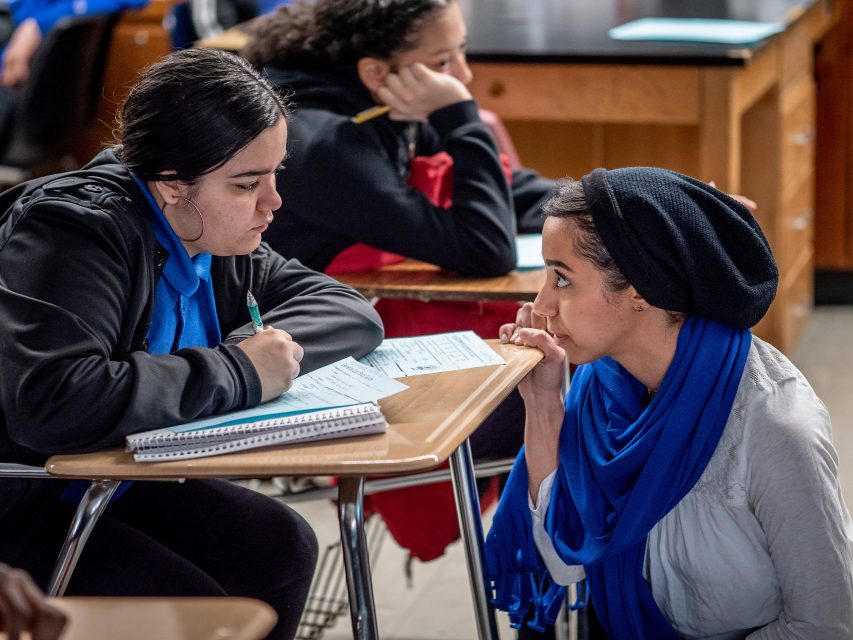
Keeping Water Clean After a Disaster
Water crises such as Puerto Rico’s in the aftermath of Hurricane Maria are frequent byproducts of severe natural disasters. Recognizing that clean water is essential for post-disaster relief and survival, Earth and Environmental Studies Professor Yang Deng took a holistic approach to devise an innovative emergency water treatment that uses ferrate—an emerging and multifunctional treatment agent—to remove contaminants from disaster-polluted waters and prevent the spread of water-borne infectious diseases. His affordable solution is safe and easy to use in homes and communities.
“I was inspired by my personal experience with hurricanes,” says Deng, whose research is supported by the University’s PSEG Institute for Sustainability Studies and the New Jersey Water Resources Research Institute. “I feel it’s an engineer’s responsibility to find real world solutions for disaster-affected populations that support their survival.”
Hurricane Maria’s devastating impact on Puerto Rico also inspired a national award-winning news video made by a team of Montclair State University School of Communication and Media students who visited the island during spring break in March 2018.
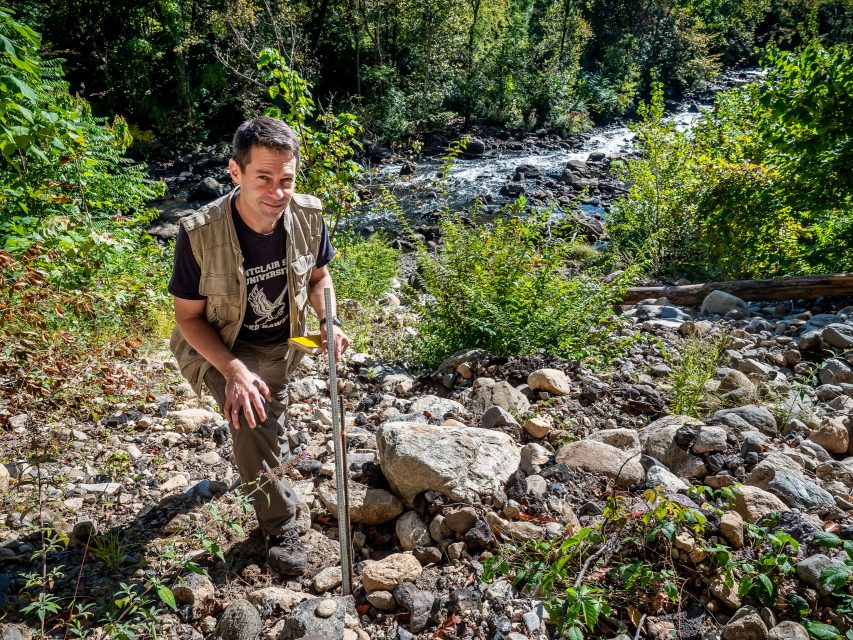
“Hurricane Recovery in Puerto Rico” won a national student Edward R. Murrow award for Excellence in Video Reporting from the Radio Television Digital News Association (RTDNA) as well as Student Emmy® Best in News and Bricker Humanitarian Awards at the Television Academy Foundation 39th College Television Awards. Students also received a 2019 AWMF Gracie Award Local Television Award for “Carpe Diem: Mission to Puerto Rico News Magazine,” which included material from the video.
The Future of Energy in New Jersey
Montclair State’s Clean Energy and Sustainability Analytics Center facilitates research, analysis, and outreach regarding clean energy development in New Jersey, the nation, and abroad.
Funded in part by corporate partners and state agencies including the New Jersey Board of Public Utilities, organizations such as the Sediment Management Work Group, and ongoing National Science Foundation and US Department of Agriculture grants, the Center collaborates with faculty on numerous research projects.
It also contributes to New Jersey energy and environmental planning through faculty-student research and the development of state-of-the-art integrated economic models. According to Center Director and Earth and Environmental Studies Associate Professor Pankaj Lal, the Center—which also hosts events and education programs—is the future of energy in New Jersey
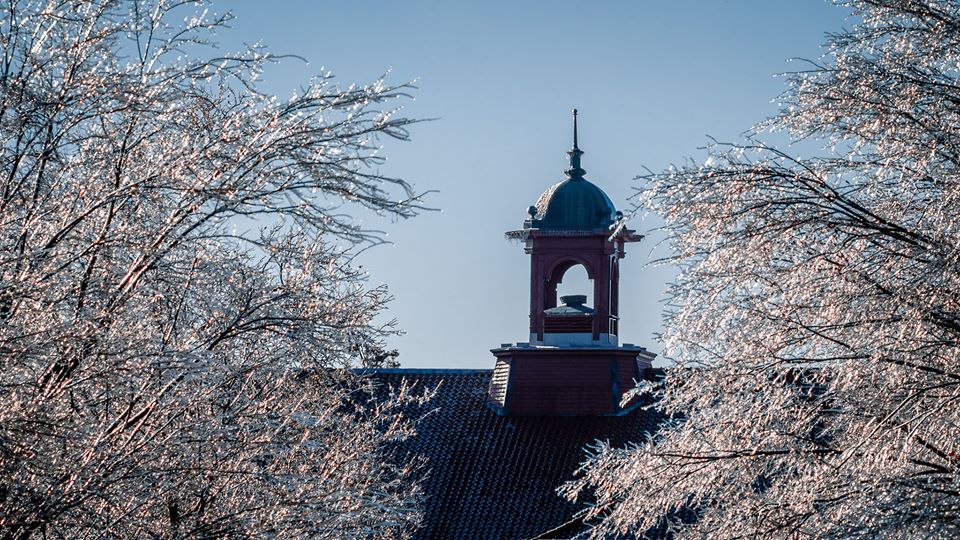
Uniquely Innovative Academic Programs
As New Jersey’s second-largest public university, Montclair State has long been a leader in educational innovation. The Departments of Linguistics and Computer Science have collaborated to offer the first MS degree program in Computational Linguistics in New Jersey. The two-year interdisciplinary program prepares students for professional success in a fast-growing field concerned with the statistical and rule based modeling of natural language from a computational perspective, as well as the study of computational approaches to linguistic questions.
Since 2015, the MIX—Making and Innovating for X—Lab at the Feliciano School of Business has been an interdisciplinary hub for transformative innovation and digitally mediated making that promotes real world outcomes across campus— and beyond.
Housed in the Feliciano Center for Entrepreneurship & Innovation, the MIX Lab’s 48 3D printing devices are a resource for the entire University. Undergraduate students from any major can earn a Certificate in Innovation Design and Digitally Mediated Making. According to MIX Lab Co-Director Iain Kerr, the award-winning certificate program is not just the only one of its kind anywhere, but it is also the most comprehensive, offering opportunities for everything from paid externships and a travel exchange with Austria’s University of Graz to a Design Entrepreneur in Residence program for graduates.
